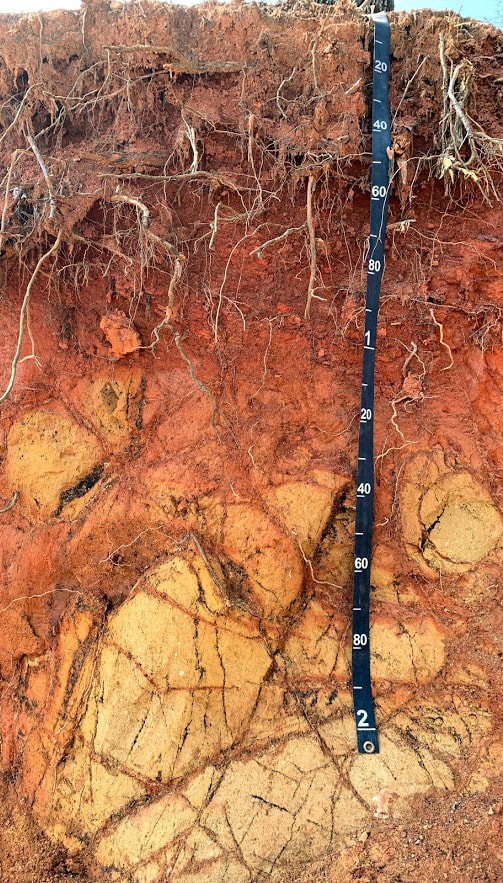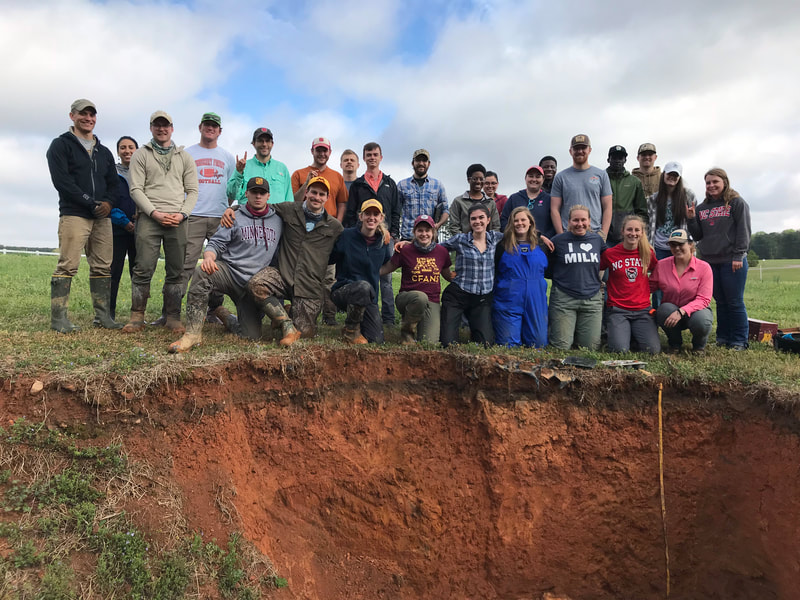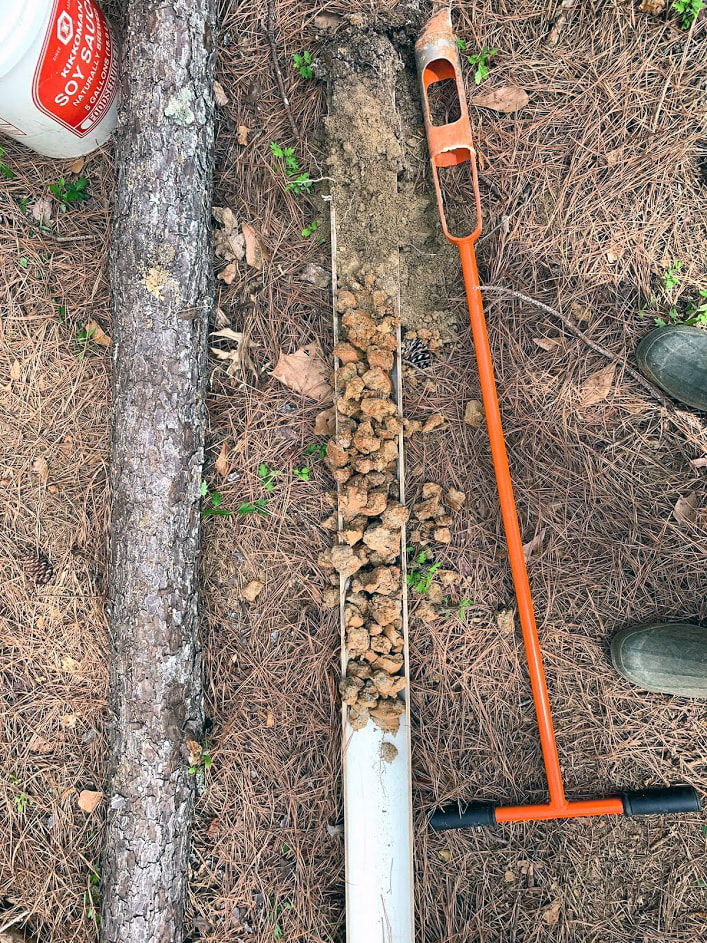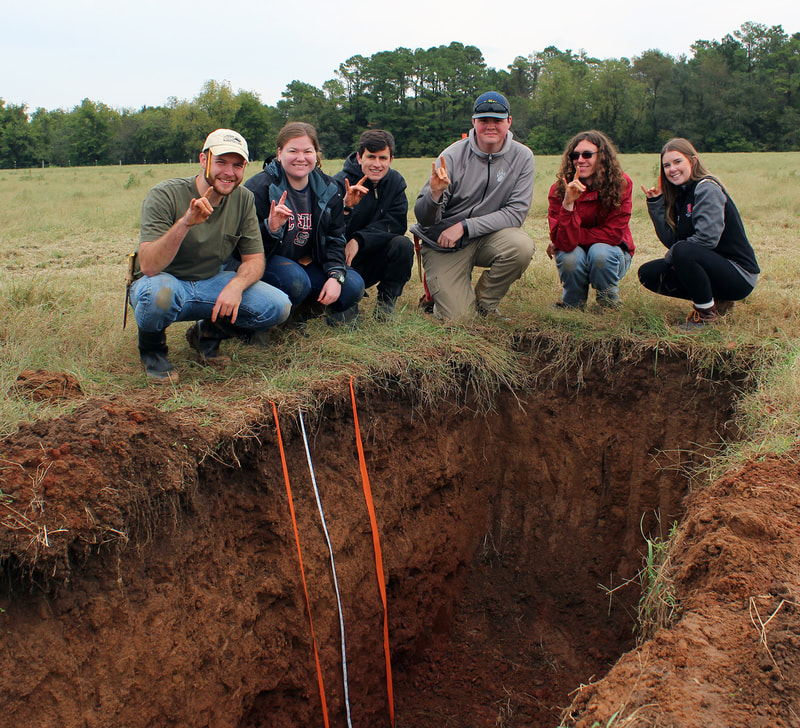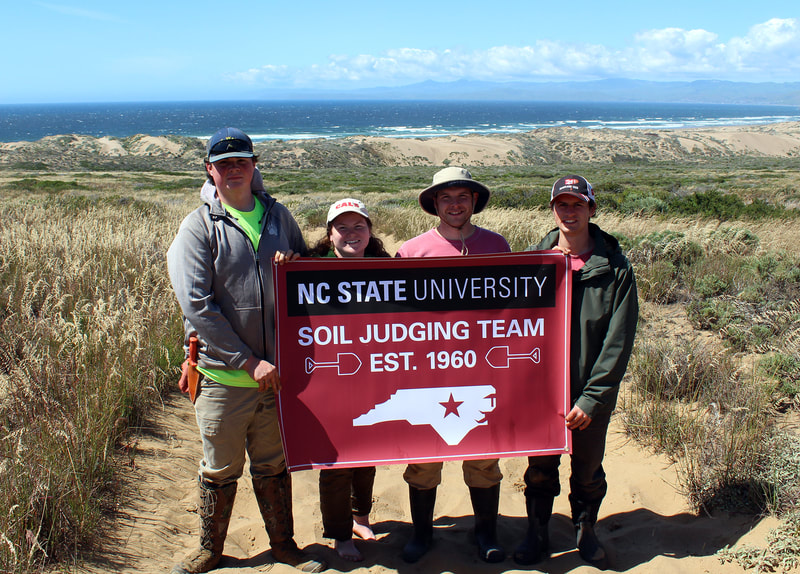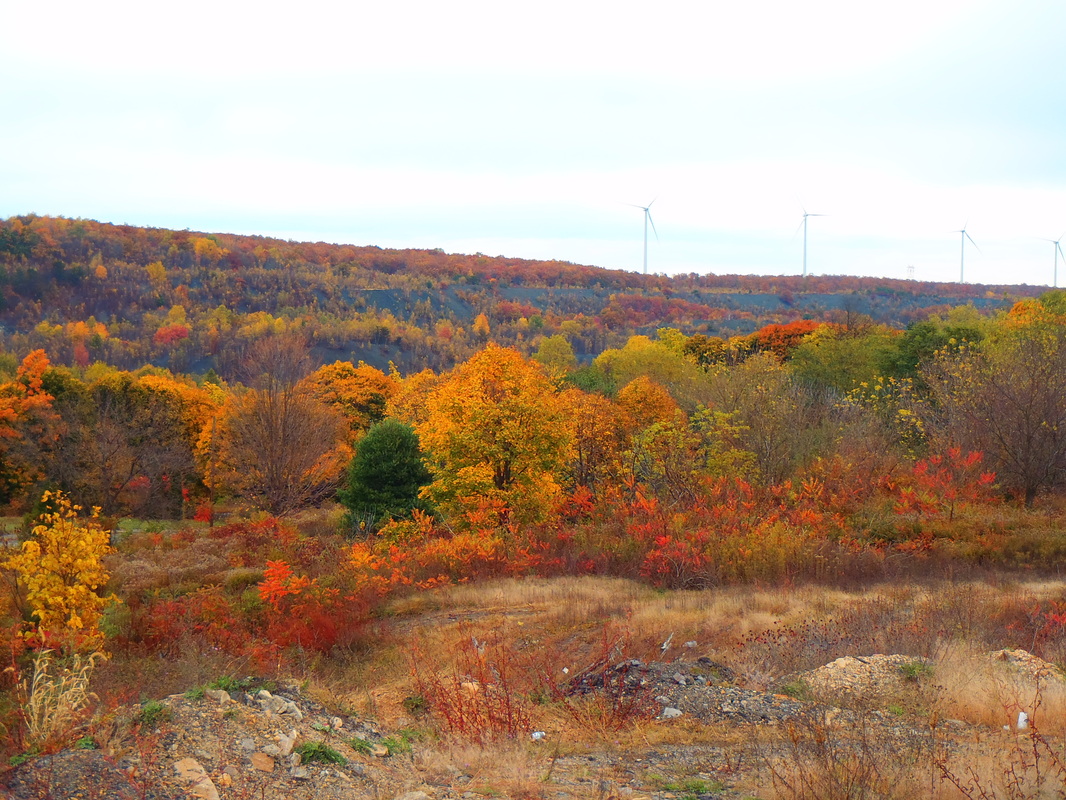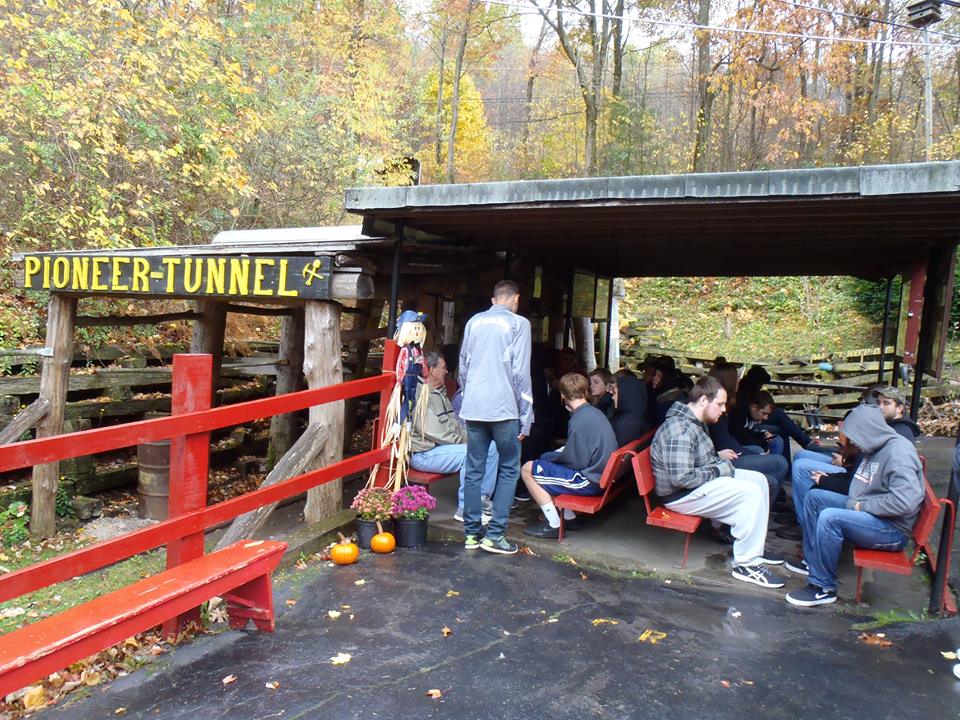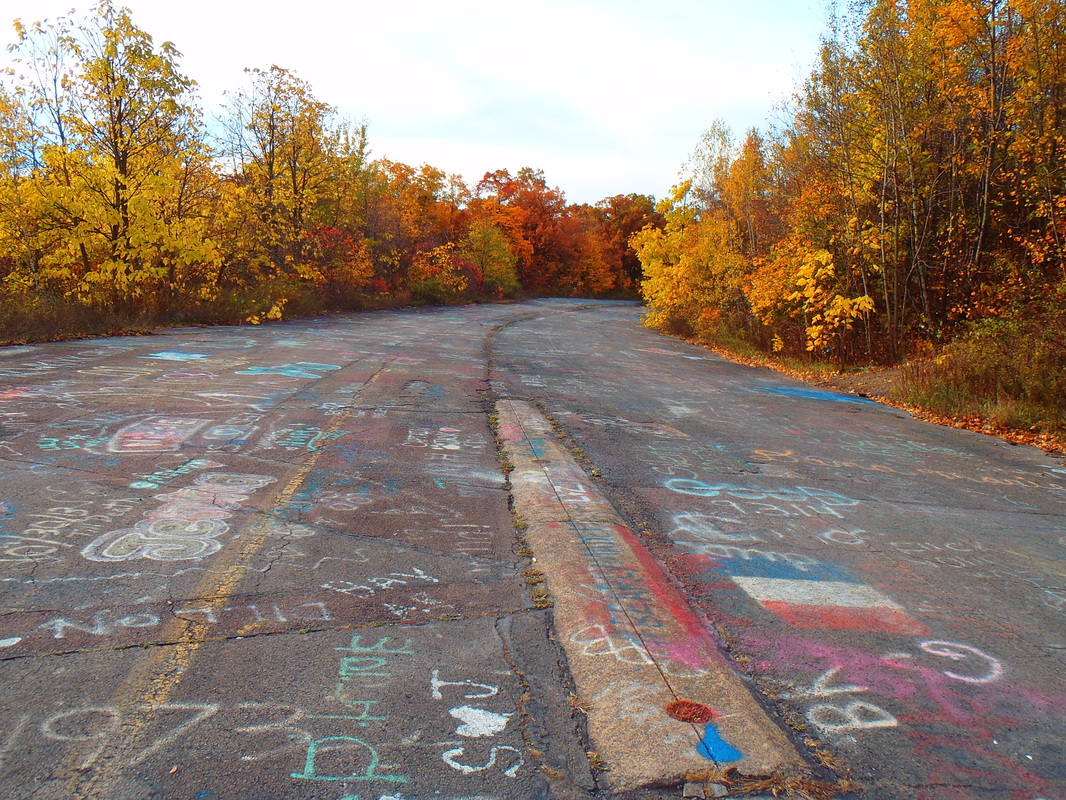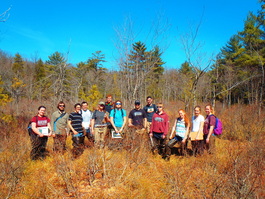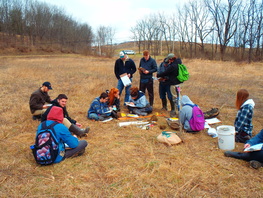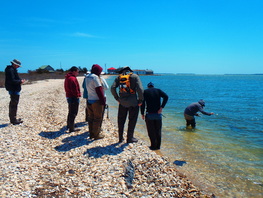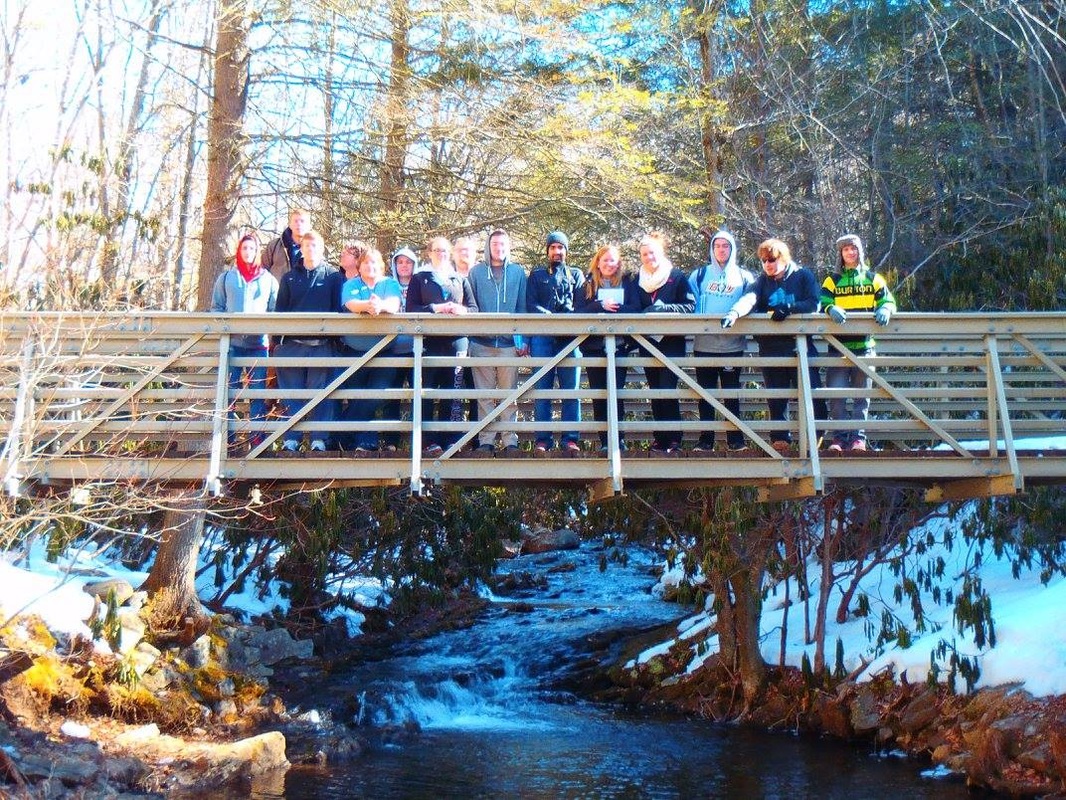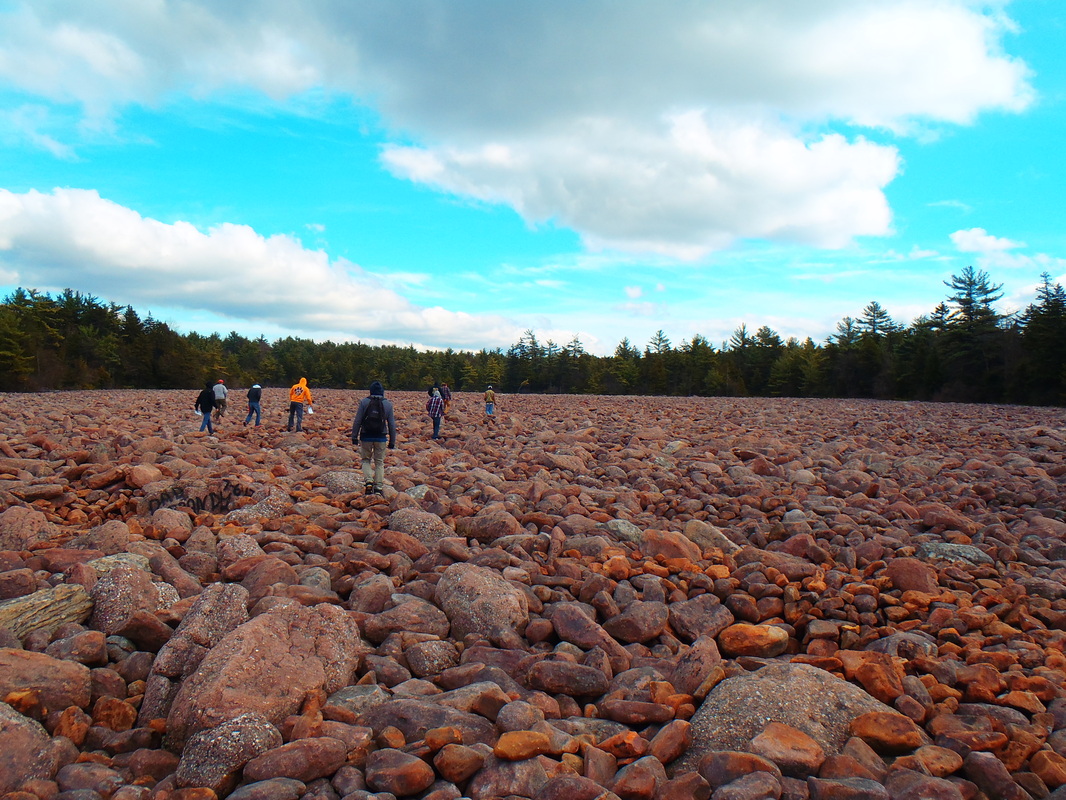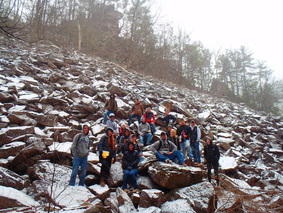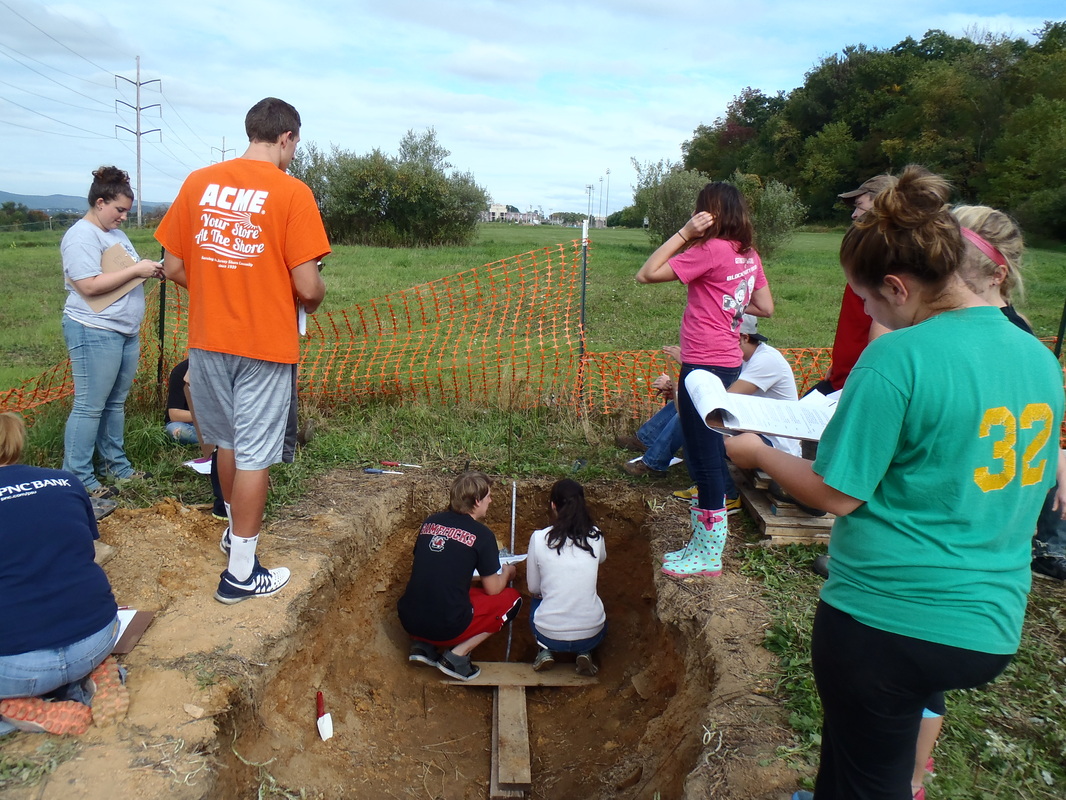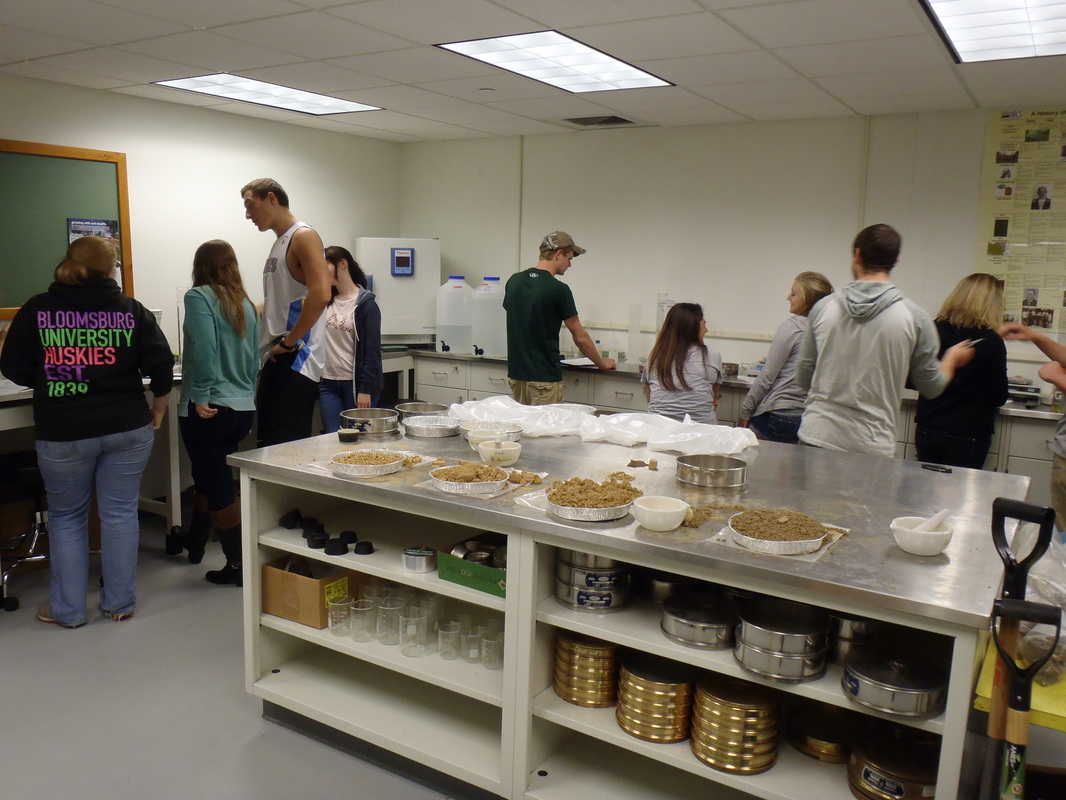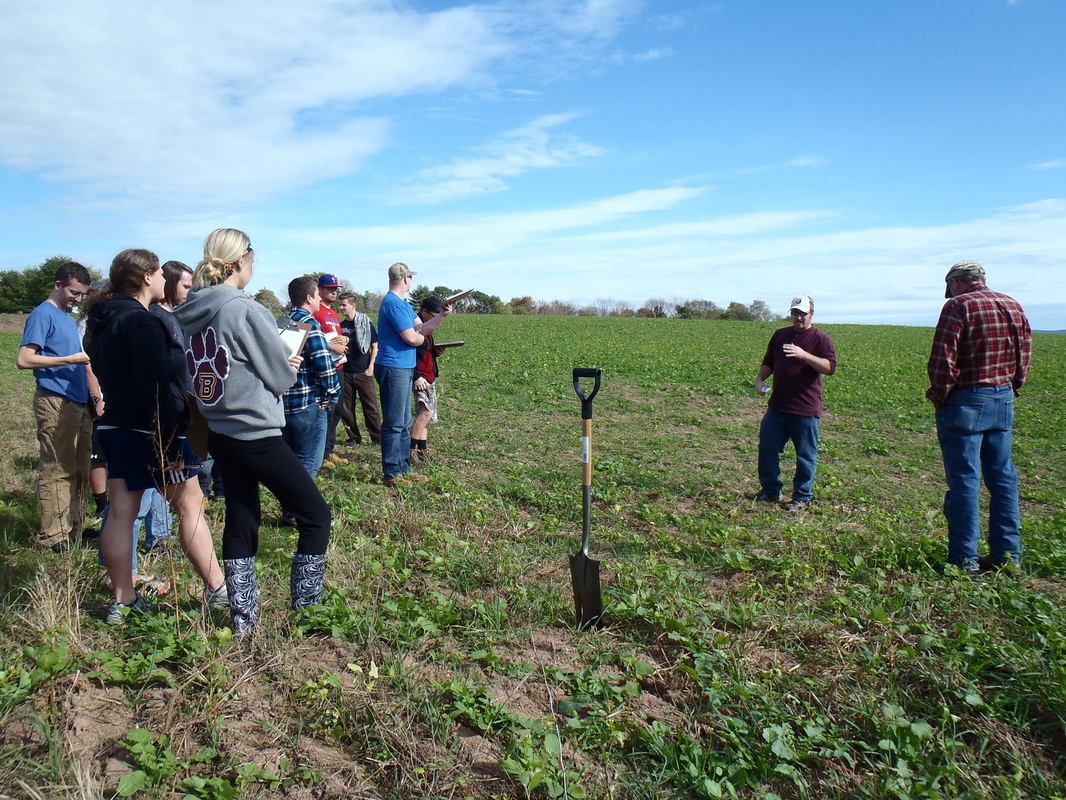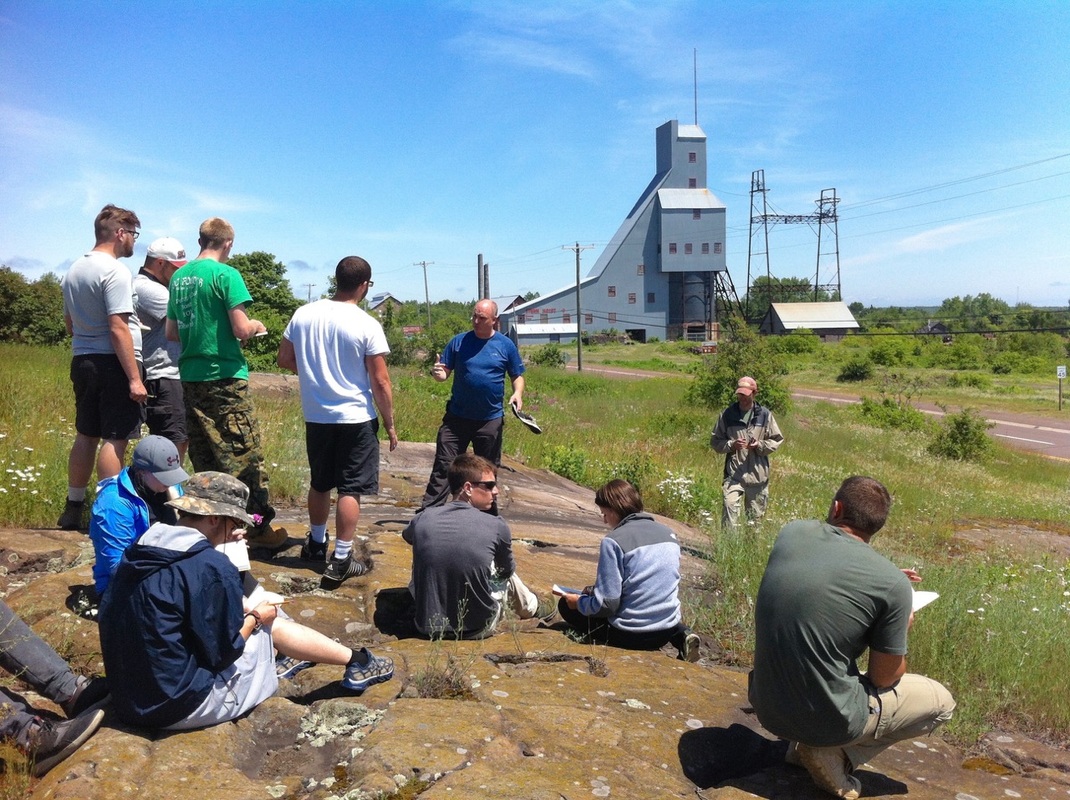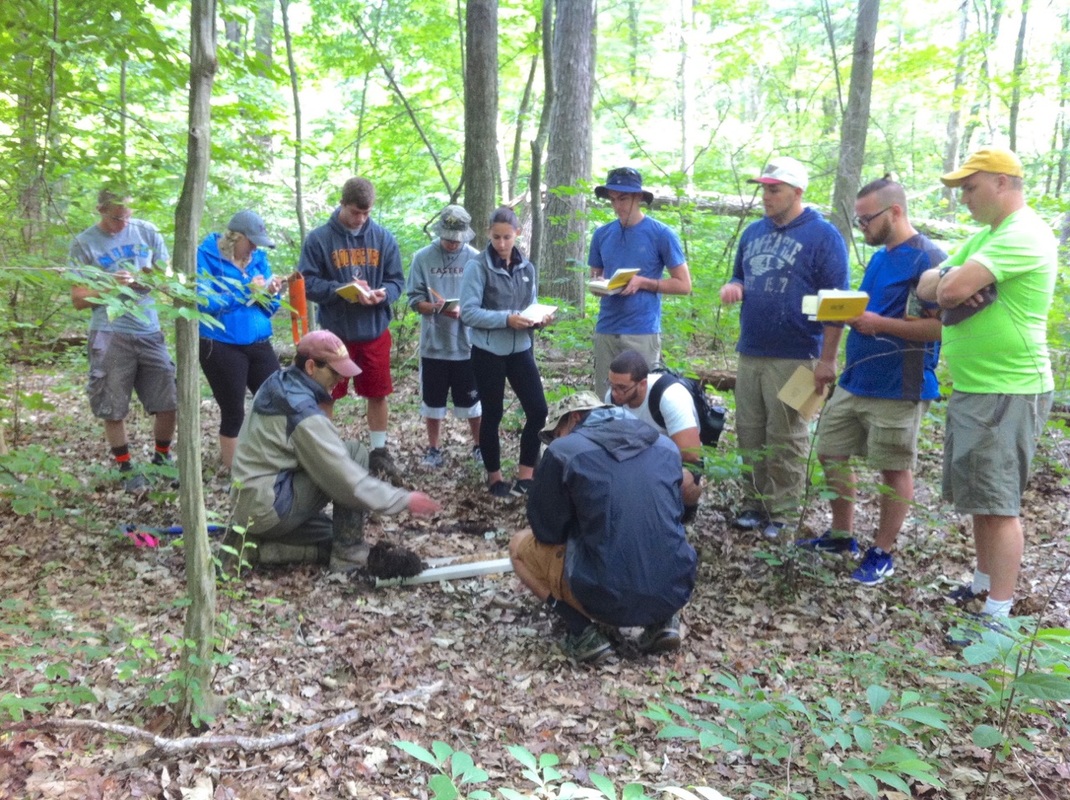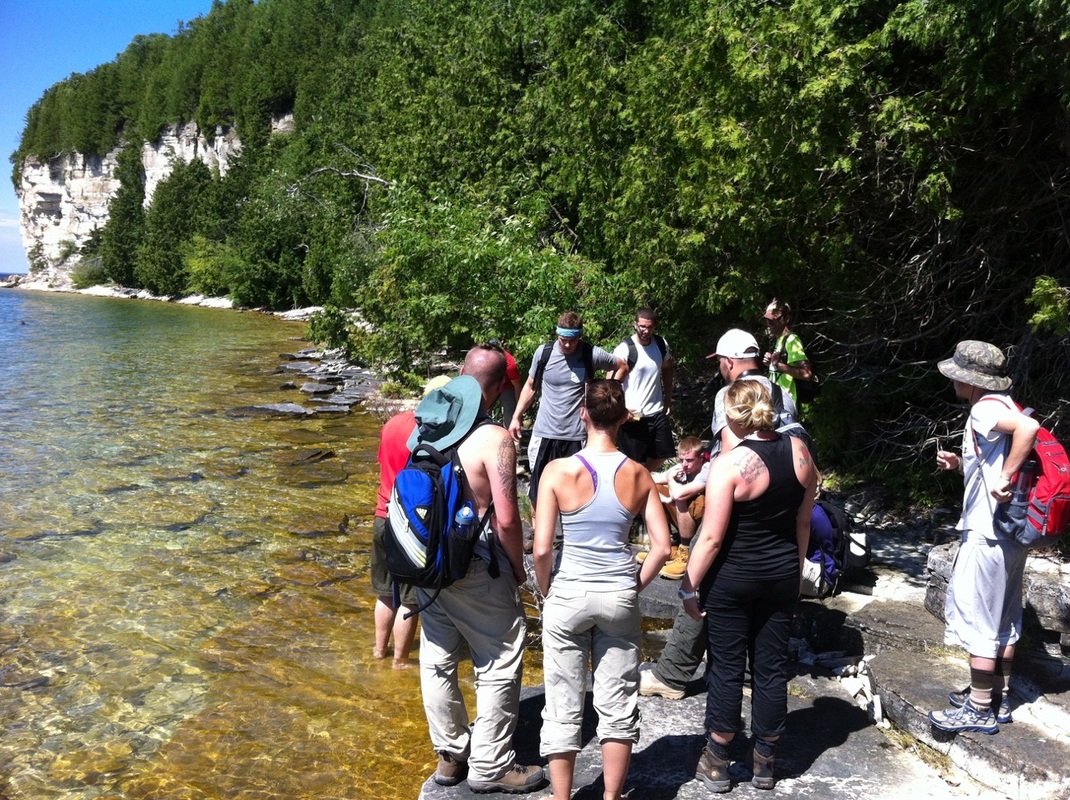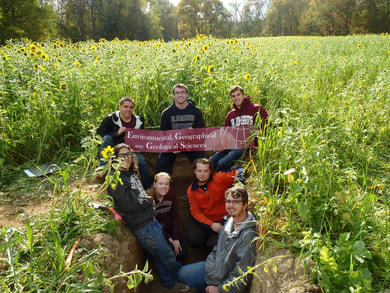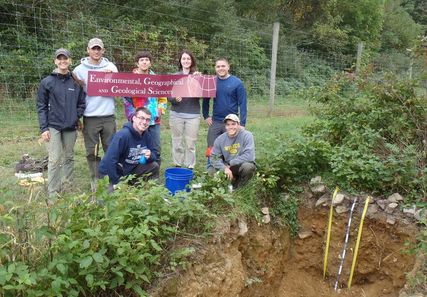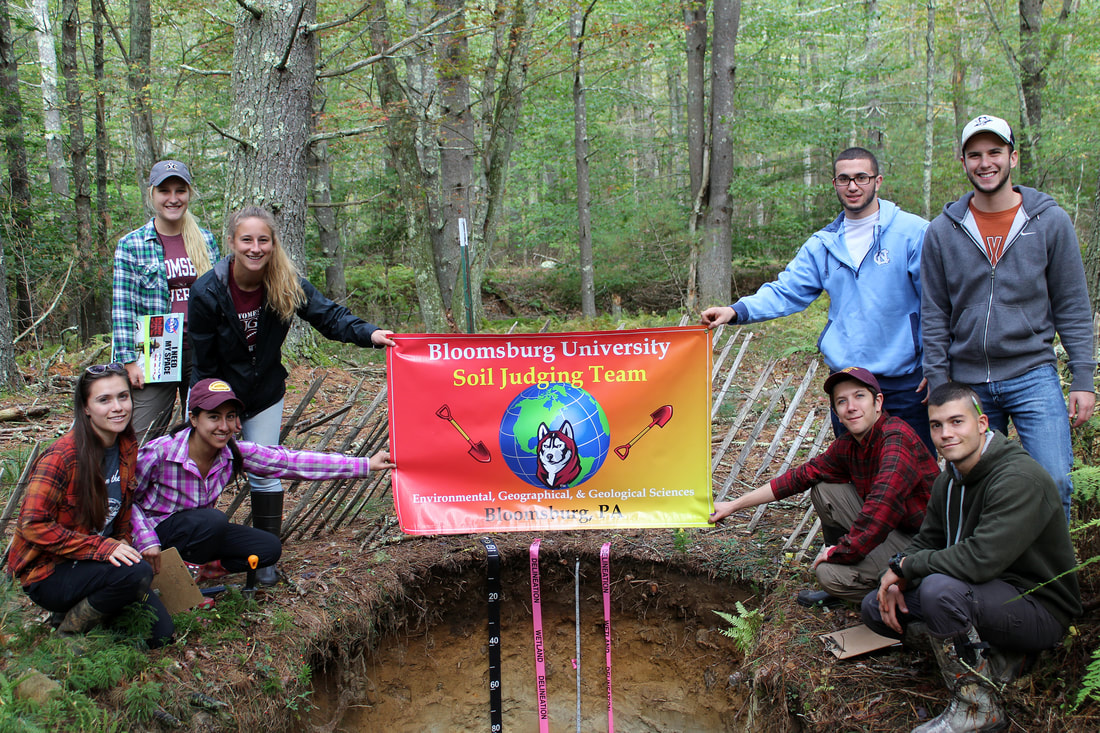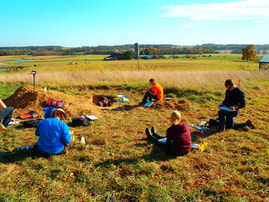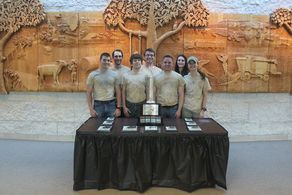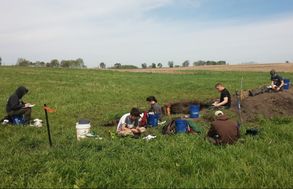Courses
2018-Present: North Carolina State University
SSC 452/551: Soil Morphology, Genesis and Classification (3-4 credit hours)
Understand important morphological soil properties, influence of geologic and geomorphic settings on soil development, categories and criteria of the U.S. soil classification system, and characterization of diagnostic soil horizons. Field evaluation of soil and preparation of soil resource map.
Prerequisite: SSC 200 or equivalent.
SSC 452/551: Soil Morphology, Genesis and Classification (3-4 credit hours)
Understand important morphological soil properties, influence of geologic and geomorphic settings on soil development, categories and criteria of the U.S. soil classification system, and characterization of diagnostic soil horizons. Field evaluation of soil and preparation of soil resource map.
Prerequisite: SSC 200 or equivalent.
SSC 410 (Formerly 495-002): Soil Judging for Land Evaluation (1 credit hours)
Lecture and field-based course on describing, classifying, and interpreting soils in their natural setting. Topics will focus on a particular land region that will change each year. Lectures explain land evaluation techniques and include soil morphology, genesis, and classification. Urban and agricultural applications will be considered. The course meets once per week for 8 weeks. Three field trips will be required and count as labs. The weekly meeting time is TBA. Students who complete the class have the option of participating in a regional, intercollegiate, Soil Judging Contest during each fall semester. Participation in the national contest during the spring semester depends on qualifying at the regional level the previous fall. Open to all majors.
For more information see our website: https://soiljudging.wordpress.ncsu.edu/
Lecture and field-based course on describing, classifying, and interpreting soils in their natural setting. Topics will focus on a particular land region that will change each year. Lectures explain land evaluation techniques and include soil morphology, genesis, and classification. Urban and agricultural applications will be considered. The course meets once per week for 8 weeks. Three field trips will be required and count as labs. The weekly meeting time is TBA. Students who complete the class have the option of participating in a regional, intercollegiate, Soil Judging Contest during each fall semester. Participation in the national contest during the spring semester depends on qualifying at the regional level the previous fall. Open to all majors.
For more information see our website: https://soiljudging.wordpress.ncsu.edu/
2018-2019
2019-2020
2014-2018: Bloomsburg University of Pennsylvania
EGGS 100: Introduction to Environmental Science (3 credit hours)
Provides students with the scientific principles, concepts, and methodologies required to understand the interrelationships of the natural world, to identify and analyze environmental problems both natural and human-made, to evaluate the relative risks associated with these problems, and to examine alternative solutions for mitigating and/or preventing them. This course is appropriate for all students, has no prerequisites, and is required for majors in Environmental, Geographical, and Geological Sciences. The course is comprised of three hours of lecture per week. Out-of-class field trip with a modest fee is required. This course earns three GEPs toward Goal 5 Natural Sciences in general education.
EGGS 100: Introduction to Environmental Science (3 credit hours)
Provides students with the scientific principles, concepts, and methodologies required to understand the interrelationships of the natural world, to identify and analyze environmental problems both natural and human-made, to evaluate the relative risks associated with these problems, and to examine alternative solutions for mitigating and/or preventing them. This course is appropriate for all students, has no prerequisites, and is required for majors in Environmental, Geographical, and Geological Sciences. The course is comprised of three hours of lecture per week. Out-of-class field trip with a modest fee is required. This course earns three GEPs toward Goal 5 Natural Sciences in general education.
MARSCI 250: Wetlands Ecology with laboratory (4 credit hours)
Biological, chemical, and geological characteristics of wetlands. Considers the structure and function of wetlands, human impacts on wetlands, and approaches for wetland management and restoration. Laboratory consists of field exercises in the study of wetlands. Three hours of lecture per week. Prerequisite: BIOLOGY.110, BIOLOGY.120.
Biological, chemical, and geological characteristics of wetlands. Considers the structure and function of wetlands, human impacts on wetlands, and approaches for wetland management and restoration. Laboratory consists of field exercises in the study of wetlands. Three hours of lecture per week. Prerequisite: BIOLOGY.110, BIOLOGY.120.
EGGS 265: Geomorphology with laboratory (4 credit hours)
Study of the origin of landforms with emphasis on the geologic processes and structures that generate the landforms and applications of landform analysis. Two-day weekend field trip is required. This course is comprised of three hours of lecture and two hours of laboratory per week. Prerequisites: EGGS 120 and EGGS 242 or consent of instructor.
Study of the origin of landforms with emphasis on the geologic processes and structures that generate the landforms and applications of landform analysis. Two-day weekend field trip is required. This course is comprised of three hours of lecture and two hours of laboratory per week. Prerequisites: EGGS 120 and EGGS 242 or consent of instructor.
EGGS 303: Soil Resources Management with laboratory (4 credit hours)
Provides a thorough background to the geo-environmental aspects of soil such as its nature and properties, factors of soil formation, classification and geographical distribution. Examines the interpretation of soil surveys and their role in land use and resource planning, conservation and management and environmental quality. Prerequisites: EGGS 120 and one 100 level chemistry course.
Provides a thorough background to the geo-environmental aspects of soil such as its nature and properties, factors of soil formation, classification and geographical distribution. Examines the interpretation of soil surveys and their role in land use and resource planning, conservation and management and environmental quality. Prerequisites: EGGS 120 and one 100 level chemistry course.
EGGS 330: Special Topics in Field Geology (3 Credit Hours)
Great Lakes Geology and Environmental Issues (Michigan, Wisconsin, Indiana), Summer 2016.
Co-taught with Drs. S. Whisner and J. Whisner.
Applies basic geoscience knowledge and skills to field study of a specific geologic region. This course requires students to read, summarize, and present background information on field trip locales; to record and analyze field observations; and to synthesize the experience in a written report. Students will incur costs for up to two weeks of transportation, room, and board. The course will include primitive camping and strenuous hiking. EGGS 330 may be taken once for credit toward EGGS major and once as a free elective (a maximum of two times). This course is offered in summer sessions.
Prerequisites: EGGS 100, 120, and 242, or permission of instructors.
Great Lakes Geology and Environmental Issues (Michigan, Wisconsin, Indiana), Summer 2016.
Co-taught with Drs. S. Whisner and J. Whisner.
Applies basic geoscience knowledge and skills to field study of a specific geologic region. This course requires students to read, summarize, and present background information on field trip locales; to record and analyze field observations; and to synthesize the experience in a written report. Students will incur costs for up to two weeks of transportation, room, and board. The course will include primitive camping and strenuous hiking. EGGS 330 may be taken once for credit toward EGGS major and once as a free elective (a maximum of two times). This course is offered in summer sessions.
Prerequisites: EGGS 100, 120, and 242, or permission of instructors.
EGGS 475: Independent Study - Trace Metals in Coal Contaminated Alluvial Soils (3 Credit Hours)
Fall 2016
Quantification of trace metal contamination in alluvial landscapes of the Susquehanna River. Two major laboratory techniques will be utilized in this research: sand grain counts to quantify the proportion of anthracite coal grains in alluvial soil horizons and x-ray fluorescence (XRF) total elemental analysis on samples to quantify metal concentrations. These data will be used to map the distribution of coal contamination in floodplain landscapes of the region.
Fall 2016
Quantification of trace metal contamination in alluvial landscapes of the Susquehanna River. Two major laboratory techniques will be utilized in this research: sand grain counts to quantify the proportion of anthracite coal grains in alluvial soil horizons and x-ray fluorescence (XRF) total elemental analysis on samples to quantify metal concentrations. These data will be used to map the distribution of coal contamination in floodplain landscapes of the region.
Collegiate Soil Judging: MPERS Club Activity
Students learn how to describe soil morphology, general geomorphology, classify soils, and make land use interpretations in a field environment. Weekend
activity, no fee required. Travel to host schools for competition is required. Maximum 8 students, fall semesters. No prerequisites, but preferable that students have taken EGGS 265 or 303.
2017 National Contest (N. Illinois University): News Link 1, News Link 2
2016 Regional (Penn State): News Link
2015 Regional (Ohio State): News Link
Students learn how to describe soil morphology, general geomorphology, classify soils, and make land use interpretations in a field environment. Weekend
activity, no fee required. Travel to host schools for competition is required. Maximum 8 students, fall semesters. No prerequisites, but preferable that students have taken EGGS 265 or 303.
2017 National Contest (N. Illinois University): News Link 1, News Link 2
2016 Regional (Penn State): News Link
2015 Regional (Ohio State): News Link
Soil Judging Team competes in national competition: https://t.co/UIJWCB2S7C ⛏□□ #HuskyUnleashed #geology #geoscience pic.twitter.com/3yjByEpUxb
— BloomsburgUniversity (@BloomsburgU) April 25, 2017
